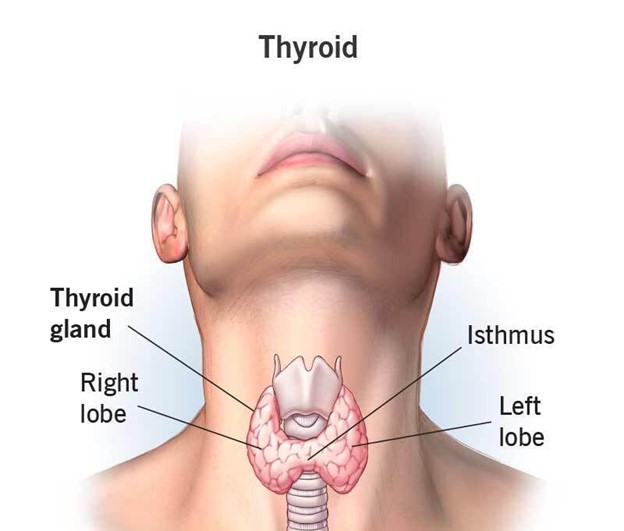The nurse is caring for a school-age child with hyperthyroidism (Graves' disease). Which clinical manifestations should the nurse monitor that may indicate a thyroid storm? (Select all that apply.)
Tachycardia.
Constipation.
Hyperthermia.
Vomiting.
Hypotension.
Correct Answer : A,C,D
The correct answers are choices A, C, and D: Tachycardia, Hyperthermia, and Vomiting.
Choice A rationale:
Tachycardia. Tachycardia, an abnormally fast heart rate, is a classic manifestation of thyroid storm. In this life-threatening condition, there is an excessive release of thyroid hormones, leading to increased metabolic rate and subsequent cardiovascular effects such as tachycardia.
Choice B rationale:
Constipation. This choice is incorrect for thyroid storm. Hyperthyroidism typically leads to increased bowel motility and can cause diarrhea rather than constipation.
Choice C rationale:
Hyperthermia. This is a correct choice. Thyroid storm is associated with severe hyperthermia due to the increased metabolic rate caused by excessive thyroid hormones. The body's temperature regulation is disrupted, leading to dangerously high body temperatures.
Choice D rationale:
Vomiting. This is a correct choice. Gastrointestinal symptoms, including vomiting and nausea, can occur in thyroid storm due to the heightened metabolic state. Thyroid storm affects various systems, including the gastrointestinal system, leading to symptoms like vomiting.
Choice E rationale:
Hypotension. This choice is incorrect for thyroid storm. Thyroid storm is more likely to cause hypertension rather than hypotension due to the increased cardiac output and sympathetic stimulation.
Nursing Test Bank
Naxlex Comprehensive Predictor Exams
Related Questions
Correct Answer is A
Explanation
The correct answer is choice A: Administer pancreatic enzymes between meals if at all possible.
Choice A rationale:
Administer pancreatic enzymes between meals if at all possible. This is the correct choice. When educating the parents and child with cystic fibrosis about the administration of pancreatic enzymes, it's important to emphasize that these enzymes should be given between meals whenever feasible. Administering them between meals, when the stomach is less acidic and less likely to release the enzymes prematurely, ensures optimal digestion of food and absorption of nutrients. This approach aligns with the physiological need to supplement pancreatic enzyme function due to the inadequate natural enzyme production in cystic fibrosis.
Choice B rationale:
Pancreatic enzymes can be swallowed whole or sprinkled on a small amount of food taken at the beginning of a meal. This choice is a valid option for administering pancreatic enzymes. While it's true that the enzymes can be taken either by swallowing the capsules whole or by opening them and sprinkling the contents on a small amount of food at the start of a meal, this method can vary based on individual preferences and abilities. However, the primary focus should be on timing (between meals) to achieve the best enzymatic action.
Choice C rationale:
Do not administer pancreatic enzymes if the child is receiving antibiotics. This statement is not accurate. There is no general contraindication to administering pancreatic enzymes while a child is on antibiotics. However, it's important for the healthcare provider to be aware of all the medications the child is taking to ensure there are no potential drug interactions or effects on absorption. Always consult with the healthcare team before adjusting the administration of any medication.
Choice D rationale:
Decrease the dose of pancreatic enzymes if the child is having frequent, bulky stools. This statement is not consistent with typical practice. If a child is experiencing frequent, bulky stools, it may actually indicate that the pancreatic enzyme dosage needs adjustment (increasing the dose rather than decreasing). Bulky stools can suggest poor digestion and absorption, which might require more enzymes to properly break down nutrients. Dosage adjustments should always be made under the guidance of the healthcare provider based on factors such as stool consistency, weight gain, and nutritional status.
Correct Answer is A
Explanation
Choice A rationale:
A goiter refers to the enlargement or hypertrophy of the thyroid gland. This can occur due to various reasons, such as iodine deficiency, autoimmune disorders like Hashimoto's thyroiditis, or Graves' disease (which is associated with hyperthyroidism). The thyroid gland produces hormones that regulate metabolism and growth, and when it becomes enlarged, it can lead to visible swelling in the neck.
Choice B rationale:
The posterior pituitary gland is responsible for the release of hormones like vasopressin (antidiuretic hormone) and oxytocin. A goiter is not associated with the posterior pituitary gland. Issues with the posterior pituitary can lead to problems with water balance and uterine contractions, but not thyroid enlargement.

Choice C rationale:
The adrenal glands are responsible for producing hormones like cortisol and adrenaline. While adrenal disorders can lead to various hormonal imbalances, a goiter is not related to adrenal gland function. Adrenal issues might cause symptoms like fatigue, weight changes, and blood pressure irregularities.
Choice D rationale:
The anterior pituitary gland produces hormones that regulate the functions of other endocrine glands, including the thyroid gland. However, a goiter is not directly associated with the anterior pituitary. The anterior pituitary's malfunction can result in disorders like growth hormone deficiency or Cushing's disease, but not thyroid enlargement.
Whether you are a student looking to ace your exams or a practicing nurse seeking to enhance your expertise , our nursing education contents will empower you with the confidence and competence to make a difference in the lives of patients and become a respected leader in the healthcare field.
Visit Naxlex, invest in your future and unlock endless possibilities with our unparalleled nursing education contents today
Report Wrong Answer on the Current Question
Do you disagree with the answer? If yes, what is your expected answer? Explain.
Kindly be descriptive with the issue you are facing.
